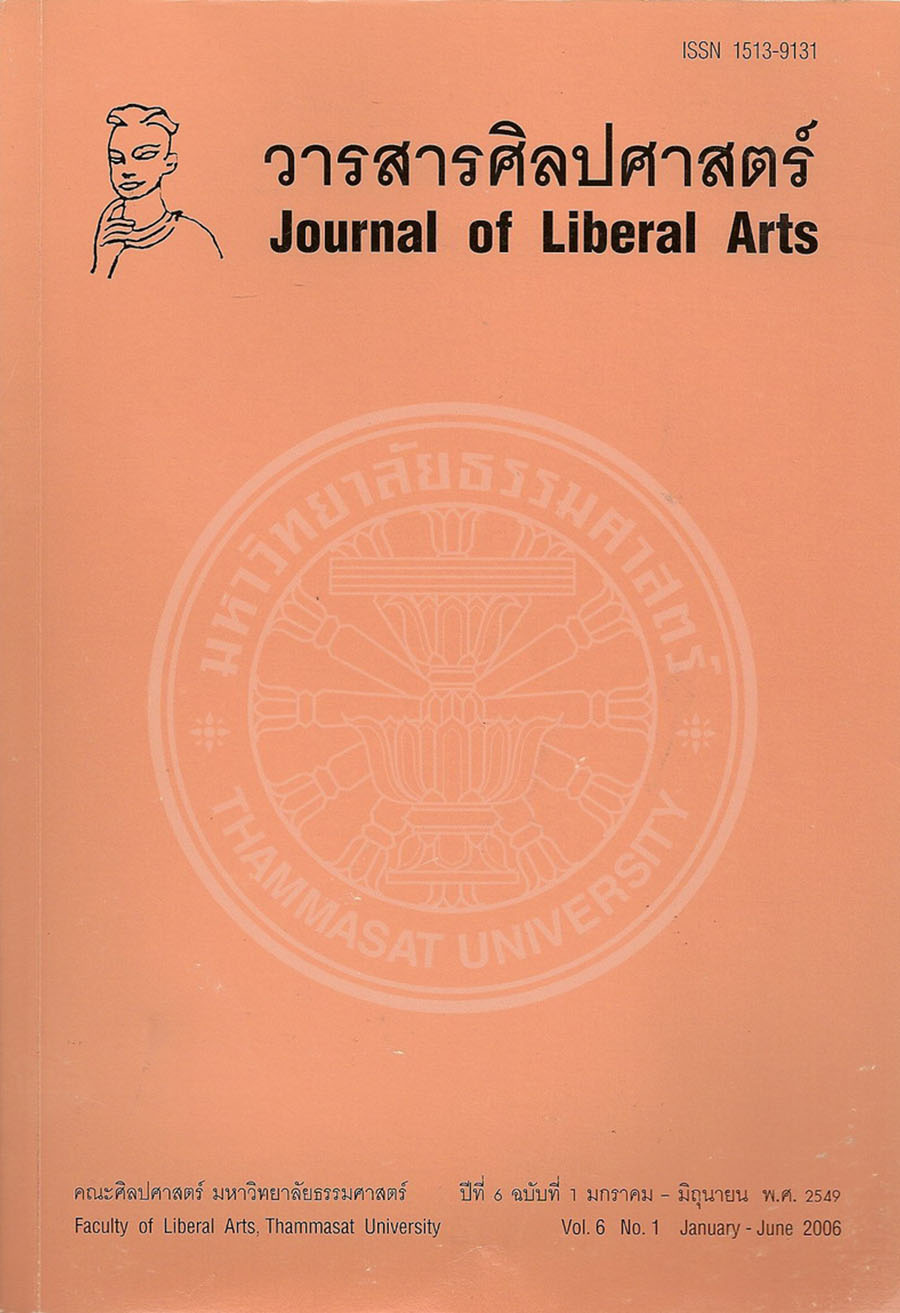ศักยภาพในการเรียนภาษาอังกฤษของเด็กไทยกับตัวแปรบั่นทอนทางสังคม
Main Article Content
บทคัดย่อ
บทความนี้เป็นรายงานการวิจัยที่ดำเนินการ “ต่อยอด” จากรายงานการวิจัยเรื่อง “สัมฤทธิผลในการเริ่มเรียนภาษาอังกฤษของเด็กไทย” (พิณทิพย์ ทวยเจริญ, 2540, 2543) สำหรับในรายงานผลการวิจัยครั้งนี้ ผู้เขียนได้แสดงหลักฐานด้วยข้อมูลเชิงทฤษฎีจากหลักการทางภาษาศาสตร์ การสัมภาษณ์ แบบสอบถาม และข้อมูลคำยืมทับศัพท์ภาษาอังกฤษจากสื่อมวลชน เพื่อแสดงให้เห็นว่าเด็กไทยตั้งแต่วัยเด็กเล็กถึงก่อนวัยรุ่น รวมถึงเด็กหลังวัยรุ่นถึงผู้ใหญ่ตอนต้นมีศักยภาพในการเรียนภาษาอังกฤษโดยเน้นการออกเสียงพูด แต่ศักยภาพดังกล่าวถูกบั่นทอนได้จากตัวแปรทางสังคม ซึ่งได้แก่ วิธีการสอนของครู คุณภาพของครู และคำยืมทับศัพท์ภาษาอังกฤษในสื่อมวลชน นอกจากนี้ผู้วิจัยได้เสนอแนวทางการเสริม “ศักยภาพ” ของเด็กไทยในการเรียนภาษาอังกฤษ เพื่อให้บังเกิดผลที่ดีสอดคล้องกับศักยภาพที่มีอยู่
This paper is a research report, a continuation of the writer’s previous work on “The Achievement of Primary School Students in Learning English through a Linguistics-based Approach” (Tuaycharoen, 1997, 2000). In that research project, the writer answered the questions raised by the Ministry of Education concerning proper age-groups, material preparation and instructional methodology that can be adopted in Thai primary schools.
The present research aims to give further evidence from various sources of data, i.e. linguistic documents, interviews, questionnaires and English loanwords in massmedia, to show how social variables, i.e. method to teaching, language teachers’ capacity and English loanwords from media, can deter students from their language potential. The writer also points the way to the adjustment of such deterrence to meet the students’ potential for a more fruitful outcome.

